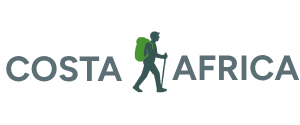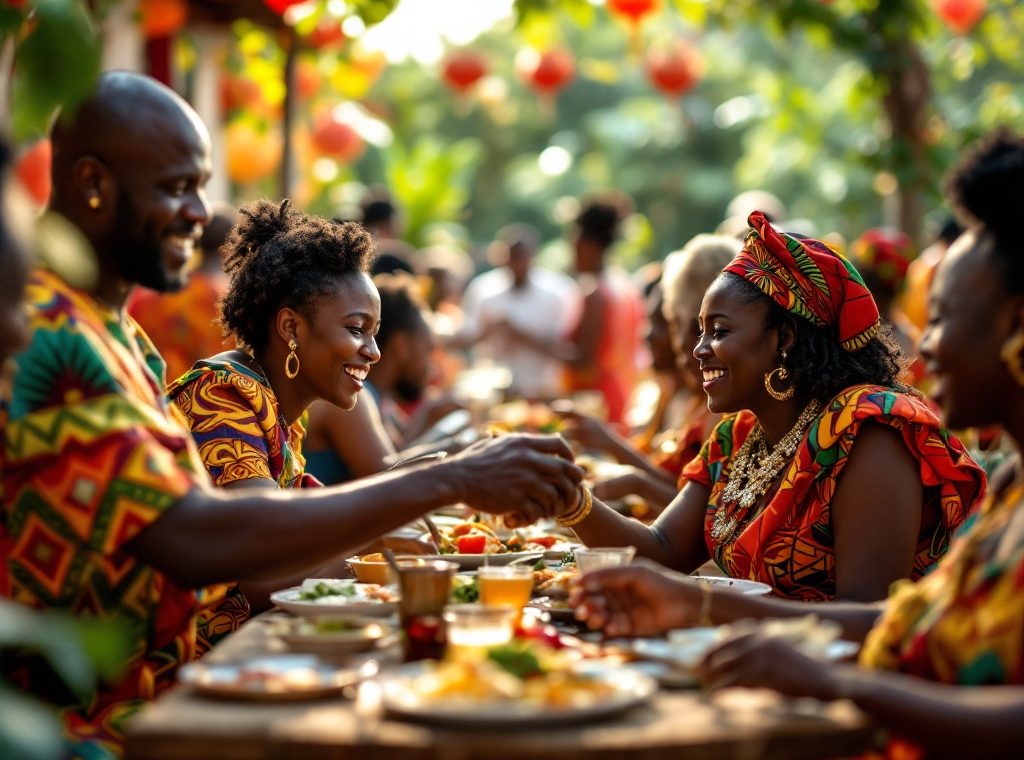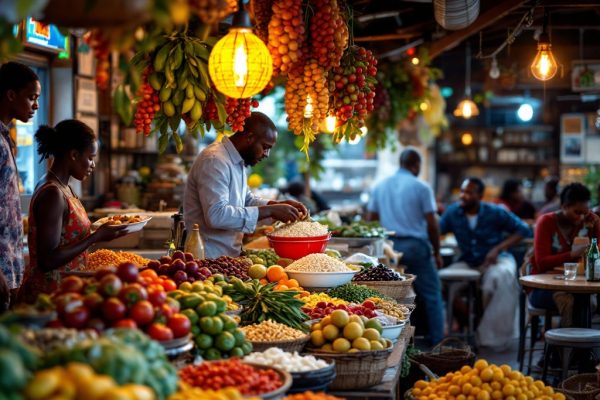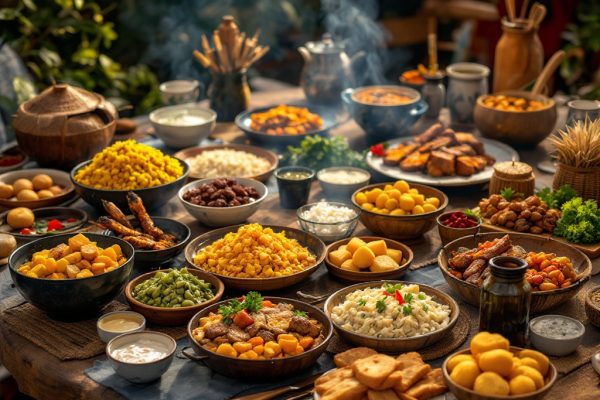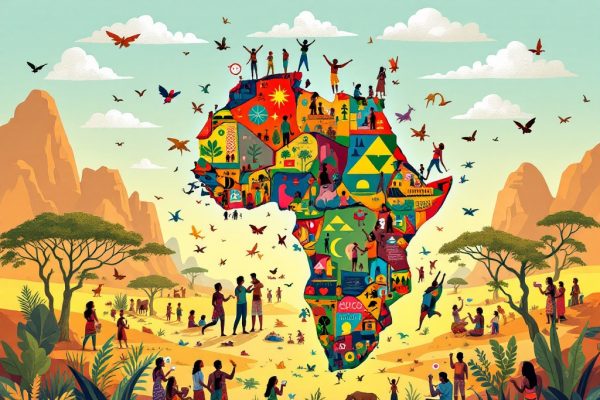Etiquette and Traditions in Kenya
Journey to Kenya and discover a rich tapestry of traditions and warm hospitality. Learn the respectful greeting “Jambo” and the art of offering gifts with your right hand. Explore unique customs, from vibrant weddings and communal meals to the significance of elders and the concept of “ubuntu.” Unlock the secrets to navigating Kenyan etiquette, from dining and business interactions to photography and dress codes, and ensure a rewarding and culturally sensitive experience. Start your Kenyan adventure today!
Important information

- Show respect to elders by using appropriate titles and greetings like “Mzee” for men and “Mama” for women.
- Always use your right hand for greetings, eating, and giving gifts, as the left hand is considered unclean.
- Inquire about someone’s well-being and family when greeting them, showing genuine interest and building rapport. “Habari gani?” (How are you?) is a common way to do this.
- Kenyan culture values hospitality; unannounced visits are common, and guests are offered refreshments like tea.
- When visiting religious sites, dress modestly, covering shoulders and knees. A head covering may be required in some places.
Understanding Etiquette and Traditions in Kenya
Respect is essential in Kenyan culture, shown through proper etiquette. Always greet and offer items with your right hand. Honoring elders and hosts is crucial, and inquiring about their well-being is polite. Removing your shoes at the entrance is customary, while a small gift for your host is a thoughtful gesture. These customs reflect Kenya’s rich cultural heritage.
In Kenya, significant events like weddings and funerals are communal experiences. Rituals and customs vary among different ethnic groups, adding to the rich tapestry of Kenyan culture.
Mealtimes also have unique customs. Handwashing before eating is standard. Sharing food from a communal dish is common. Guests are typically served first as a sign of respect.
Kenyan Culture and Customs
Kenyan culture is vibrant and renowned for its diverse customs and tight-knit communities. Sharing food is paramount, with communal meals a frequent occurrence, and guests are often greeted with tea. Hospitality is evident in the normalcy of unannounced visits. Traditional ceremonies, particularly weddings and funerals, hold significant importance and involve elaborate rituals.
Weddings
Weddings include dowry negotiations and lively celebrations showcasing traditional attire, music, and dance.
Funerals
While funerals are occasions for mourning, they also serve as celebrations of life.
Customs vary among different ethnic groups, yet the concept of “ubuntu” remains central, emphasizing interconnectedness and mutual support within the community.
Importance of Respect and Tradition
In Kenya, respect, particularly for elders, is paramount. Honoring traditions is deeply valued, and gifts are a tangible expression of respect during visits and celebrations. This respect is woven into the fabric of Kenyan interactions, evident in their respectful language, gestures, and actions. Titles and forms of address, especially for elders, are crucial. Hospitality also plays a significant role; offering food and drink to guests demonstrates both respect and generosity.
Addressing someone older with the appropriate title is essential.
Gift-giving goes beyond the material object; it’s the thoughtful act itself that carries weight.
Kenyans also place great importance on hospitality, with offering refreshments being a common courtesy and a sign of welcome and respect.
Role of Ancestors and Spiritual Beliefs
Ancestral reverence is deeply ingrained in Kenyan culture. Kenyans believe these spirits actively influence their lives, shaping their spirituality and daily actions. This respect is demonstrated through rituals and storytelling, with elders often sharing ancestral tales. While these beliefs adapt to modern times, the core respect for ancestors endures as a cornerstone of Kenyan identity.
Cultural Norms and Social Fabric
In Kenya, showing respect and building strong relationships begins with polite greetings and inquiries about well-being. This custom fosters a close-knit community, strengthening the social fabric of Kenyan society.
Religion and Beliefs
Kenya’s religious landscape is dominated by Christianity and Islam, yet indigenous beliefs continue to thrive. Traditional religions often emphasize ancestor veneration and a reverence for nature. This diverse tapestry of faiths coexists peacefully, enriching Kenya’s vibrant culture with a wealth of traditions and beliefs.
Influence of Christianity and Islam
Christianity and Islam, two of the world’s largest religions, profoundly influence moral values and shape community life. Religious events intertwine with long-held traditions, resulting in distinctive celebrations. Holidays, for instance, often blend religious rituals with local customs, strengthening community ties while reflecting a rich cultural heritage.
Role of Traditional Religion
Traditional religions are deeply ingrained in Kenyan culture, particularly in rural communities. These beliefs shape values and are integral to community life, often coexisting with Christianity and Islam. This intermingling of faiths influences daily routines and social interactions, creating a distinctive cultural tapestry.
Language and Communication
Kenya’s official languages are English and Swahili, fostering communication across its diverse communities. The country also thrives on a rich tapestry of other languages, such as Kikuyu, Luhya, Luo, and Kalenjin, adding to its linguistic richness. Learning basic Swahili phrases like “Jambo” (Hello) and “Asante” (Thank you) shows respect and improves interactions with locals.Nonverbal communication is also key in Kenya. Direct eye contact signals confidence and respect. Physical touch, like handshakes or pats on the back, is common between friends, although its appropriateness depends on the relationship and social setting. Starting conversations politely by asking about someone’s well-being encourages positive communication and shows genuine interest.
Multilingualism and Common Phrases
Kenya is a linguistically diverse nation. While English and Swahili are commonly used, a vibrant array of tribal languages also flourishes. Learning a few Swahili phrases can significantly enrich your visit. Some useful phrases include: “Jambo” (Hello), “Asante” (Thank you), and “Karibu” (Welcome). These simple greetings demonstrate respect and facilitate communication. Furthermore, Kenyans frequently engage in code-switching, seamlessly transitioning between languages.
Body Language and Physical Contact
Kenyans often greet with handshakes, and friends may exchange casual touches like back pats. Maintaining eye contact shows confidence and sincerity.
While physical greetings are common, public displays of affection are generally discouraged. Averting your gaze during conversation can be seen as disrespectful.
Conversation Starters and Politeness
Conversations in Kenya typically begin with a warm greeting, such as “Habari gani?” (How are you?) or “Hujambo?” (How are things?). Inquiring about family is customary, showing the importance of relationships. Politeness is essential, and using respectful titles like “Mzee” for an elder man or “Mama” for an elder woman demonstrates respect. Speaking softly and listening attentively further convey respect, while interrupting is discouraged. Expressing gratitude with “Asante” (thank you) is crucial. Initially, avoid sensitive topics out of consideration.
Start with a warm greeting. Use phrases like “Habari gani?” (How are you?) or “Hujambo?” (How are things?).
Inquire about family. This shows that you value relationships.
Be polite. Use respectful titles such as “Mzee” for an elder man or “Mama” for an elder woman.
Speak softly and listen attentively. Avoid interrupting.
Express gratitude. Use “Asante” (thank you).
Avoid sensitive topics initially.
Greetings and Social Interactions
In Kenya, greetings are essential signs of respect, often initiated with a handshake. Always use your right hand for handshakes and gestures as a symbol of respect.
A proper greeting goes beyond a simple handshake, demonstrating genuine care by inquiring about one’s well-being and family. For instance, “Habari gani?” (How are you?) is a common inquiry.
Titles and honorifics are important, further demonstrating politeness. Standard greetings like “Jambo” (Hello) and the informal “Mambo?” (What’s up?) are frequently used.
When greeting elders, “Shikamoo” is the respectful approach, typically met with “Marahaba” in return. These exchanges build rapport and are fundamental to Kenyan culture.
Unannounced visits are common, reflecting the deep-rooted trust and hospitality within Kenyan society.
Proper Greeting Practices
Kenyans typically greet each other with a handshake, often grasping their right forearm with their left hand as a sign of respect. A common greeting is “Jambo,” which means “Hello.”
Role of the Right Hand and Gestures
In Kenya, using your right hand for greetings, eating, and exchanging items demonstrates respect, as the left hand is considered unclean. Avoid pointing directly at someone; it’s impolite. A polite alternative is to gesture with your chin or open hand.
Unannounced Visits and Hospitality
In Kenya, unannounced visits are a common practice, reflecting a deep-rooted value of hospitality. Kenyans frequently open their homes to guests, offering refreshments and ensuring everyone feels welcome. This custom highlights the importance of community and generosity in Kenyan culture. Hosts readily accommodate unexpected visitors, demonstrating the high regard for hospitality in their society.
Family and Social Structure
Kenyan families are often large, encompassing multiple generations under one roof. These extended families may include grandparents, grandchildren, and sometimes even aunts, uncles, and cousins. Elders hold a position of deep respect, guiding family decisions with their wisdom and experience. This reverence is demonstrated through courteous communication and deference to their judgment.
Age significantly shapes social interactions in Kenya, with younger generations showing deference to their elders. While gender roles have traditionally been defined, with men often assuming leadership and women managing the home, these dynamics are evolving. Marriage customs vary across Kenya’s diverse ethnic groups, but negotiations and dowries remain common practices.
Role of Elders and Age Hierarchy
In Kenyan culture, elders are deeply respected and serve as wise guides for their communities. Addressing them properly is essential and often involves using honorifics such as “Mama” or “Baba” combined with their firstborn’s name. This custom acknowledges their wisdom and familial importance. Age holds significant weight in Kenyan society, where younger people defer to their elders. This respect is shown through language, gestures, and daily interactions.
Gender Roles and Family Dynamics
Traditionally, Kenyan men were the primary breadwinners and decision-makers, while women managed the home and raised children. Respect for elders remains deeply valued, their wisdom and guidance a cornerstone of Kenyan family life.
However, urbanization and increased access to education are transforming these dynamics. More women are entering the workforce and sharing financial responsibilities, while men are becoming more involved at home, assisting with childcare and household tasks.
Marriage Traditions and Dowry System
Kenya’s diverse ethnic groups, including the Kikuyu, Luhya, Luo, Kalenjin, and Maasai, celebrate marriage with unique customs. A common thread among these traditions is the dowry system, where the groom’s family offers gifts like livestock or money to the bride’s family. This practice symbolizes respect, appreciation, and commitment. Wedding ceremonies are joyous occasions filled with traditional attire, music, dance, and rituals specific to each community. These lively celebrations can last for days, signifying the union of two families.
Gift Giving Traditions
Gift-giving is culturally significant in Kenya, expressing respect and appreciation. A small token, such as food, drinks, or a personal item, is customary when visiting someone’s home. Offering the gift with both hands shows added courtesy. These exchanges are common during celebrations, visits, and milestones.
Common Gifts and Their Significance
In Kenya, gifts of fragrant flowers or fine tea leaves are customary expressions of appreciation and goodwill. They carry deep cultural significance.
Gift Giving as a Sign of Respect
Gift-giving in Kenya carries deep cultural significance, expressing respect and solidifying community ties, especially during milestones and religious holidays. Offering gifts with both hands demonstrates profound respect. Popular gifts include food, beverages, and personal care items. Presenting a gift when visiting someone’s home is customary, reflecting the tradition’s integral role in Kenyan culture.
Dining Etiquette in Kenya
Kenyan dining is a rich experience centered around communal sharing and warm hospitality. Guests are honored by being served first, yet it’s courteous to wait for the host to begin the meal. Traditionally, food is enjoyed using the right hand, often shared from a common plate as a symbol of unity. Offering food demonstrates goodwill, while expressing gratitude for the meal shows respect. Handwashing before meals is customary, particularly in traditional settings. Certain foods are even linked to specific occasions in some communities. Tea also plays a significant role in Kenyan hospitality, offered as a warm welcome to guests. Here are some key aspects of Kenyan dining etiquette:
Guest of Honor
Guests are typically served first as a sign of respect, but it’s polite to wait for the host to officially start the meal.
Communal Sharing
Sharing food from a common plate is a widespread tradition, symbolizing unity and togetherness.
Using the Right Hand
In many Kenyan cultures, it is customary to eat using the right hand.
Offering and Gratitude
Offering food is a sign of generosity and goodwill. Expressing thanks after a meal shows appreciation and respect.
Handwashing
Washing hands before and after meals is a common practice, especially important in traditional settings.
Food and Occasions
Specific foods might be associated with particular celebrations or events in certain communities.
The Importance of Tea
Tea holds a special place in Kenyan hospitality and is frequently served as a welcoming gesture to guests.
Eating Customs and Food Sharing
In Kenya, sharing a meal signifies unity and hospitality.
Everyone gathers to eat together, emphasizing this communal aspect.
Washing hands before and after is essential.
Guests are honored with the first servings, a sign of respect.
Meals are often shared from a common dish, further strengthening the sense of togetherness.
Eating with the right hand is customary.
Expressing gratitude or offering a blessing before the meal is also a common practice.
Importance of Tea in Hospitality
In Kenya, tea is synonymous with hospitality, a customary welcome offered to guests. Accepting a cup shows respect and appreciation for the host’s generosity, strengthening the bond between people.
Special Occasions and Food Traditions
Kenyans celebrate special occasions with flavorful dishes, such as the beloved roasted goat, nyama choma. Another popular option is mukimo, a hearty dish made with potatoes, maize, beans, and greens. These culinary traditions represent both joyous celebrations and a rich cultural heritage, offering a delicious taste of Kenya.
Kenyan Business Etiquette
In Kenya, business etiquette centers around respect and formality. Building trust is essential for successful ventures. Punctuality, while appreciated, allows for some flexibility. Formal attire is the norm: men typically wear suits and ties, and women dress modestly.
Business cards are exchanged with the right hand to show respect. Address individuals using titles like “Mr.” and “Mrs.” to demonstrate courtesy. While gifts aren’t initially expected, they can strengthen relationships later.
Bargaining is common in informal markets, but formal negotiations are structured and deliberate. It’s wise to avoid overt displays of wealth. Observing these customs can significantly improve your chances of forging strong business relationships in Kenya.
Bargaining Practices and Business Culture
Bargaining is a cornerstone of Kenyan market culture, essential for building the strong relationships that ensure successful business deals.
Importance of Respect and Formality
In Kenya, business success depends on respect and formality, especially during initial greetings and introductions. These first interactions are crucial for establishing rapport and building productive professional relationships.
Travel Etiquette and Tips
When taking photos in Kenya, always seek permission first, as some communities have cultural sensitivities regarding photography. Respecting these customs enhances your trip and demonstrates your consideration.
Dress modestly when visiting religious sites. This typically involves covering your shoulders and knees.
Some sites may also require head coverings, so it’s best to be prepared.
Be mindful of your public behavior. Avoid excessive displays of affection and safeguard your belongings, especially in crowded areas. Stay aware of your surroundings, trust your instincts, and prioritize your safety.
Photography Etiquette and Permissions
When taking photos in Kenya, always ask permission first, particularly in rural areas. Respecting privacy is key.
Dress Code and Visiting Religious Sites
When visiting religious sites, respectful attire is essential. Mosques and churches, for instance, often require modest clothing. Women might wear a head scarf. Both men and women may opt for outfits covering their shoulders and knees as a mark of respect for the sacred space.
Public Behavior and Safety Precautions
Respect local customs and be mindful of your belongings and surroundings. Keep noise to a minimum and avoid disruptive actions. Adhere to traffic regulations. Contact local authorities if you need assistance.
